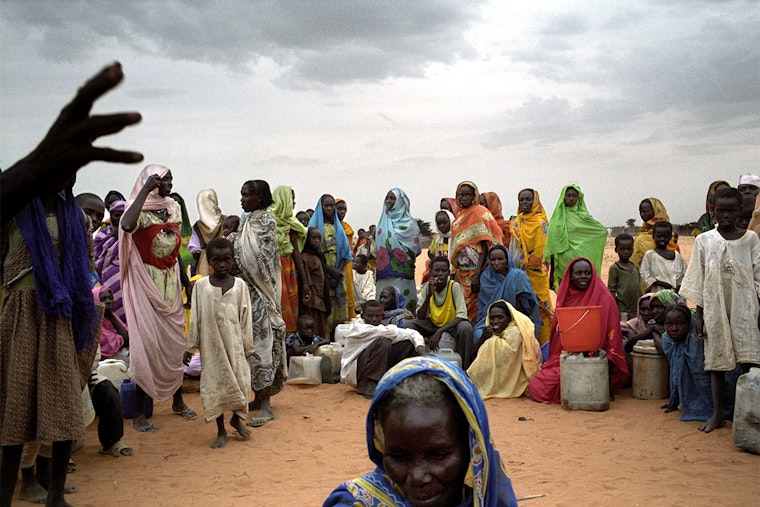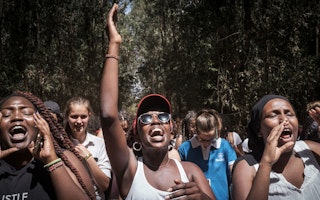Fortifying Africa Against Instability Caused by Climate Change
By Firmin Mbala

Climate change threatens to eclipse Africa’s prospects for growth and prosperity. An authoritative annual report identifies six sub-Saharan countries as being among the world’s top 10 at risk for climate-related starvation and population upheaval. The risk looks particularly extreme in West African countries like Guinea-Bissau, Sierra Leone, and Nigeria.
We’re already seeing the early stages of these threats. Many consider the conflict in Darfur—where the death toll is upwards of 300,000—as the first climatic war ever. The temperature increase of 0.7 degrees Celsius between 1990 and 2005 reduced species, and in turn drove displacement of populations as they struggled to survive. Lake Chad—shared between Niger, Nigeria, and Chad—lost 90 percent of its area in four decades (1964–2004), depriving millions of residents of substantial income and drinking water.
Research consistently shows that where populations receive less information and governments make fewer adaptation plans, suffering from climate-related instability runs highest. That’s why a coalition called the Africa Climate Change Adaptation Initiative (ACCAI) aims to create government capacity and lead research in this field.
The Open Society Foundations launched the ACCAI network in 2011 to strengthen sub-Saharan Africa’s capacities in training, research, and advocacy on climate-change adaptation. It brings together six institutions from some of Africa’s economic hubs: the University of Ghana; the University of Nigeria, Nsukka; the University of Witwatersrand (South Africa); Stellenbosch University (South Africa); Mekelle University (Ethiopia); and the University of Dar es Salaam (Tanzania). In total, ACCAI now involves hundreds of researchers.
ACCAI supports Africa’s response to climate change in three ways: First, it provides and trains skilled researchers. By 2016, 500 experts will have graduated from the MSc/PhD programs launched in the partner universities, and will set out to become game changers on the continent. Second, the initiative creates centers for scholarship and discussion around the impact of climate change. Finally, the initiative makes outreach more feasible and consistent through a series of advocacy activities to sensitize people and stakeholders to the issue.
Under the initiative’s auspices, researchers are searching for practical ways to deploy more resources to limit the spread of malaria in Ghana’s increasingly hot and humid weather. Others are learning and recording farmers’ “indigenous” techniques for dealing with droughts and floods.
Still others, at Stellenbosch University, are convening workshops to explore how social scientists can work effectively with physical scientists. And many researchers want to contribute ideas about sustaining food security no matter what the climate does.
All these researchers are pursuing questions that touch on Africa’s capacity to manage cities, create industries, and maintain peace in a world where climate change will affect everything. By asking detailed questions about a condition that all Africans will have to confront in the years to come, this timely initiative has much to contribute.
The African Climate Change Adaptation Initiative partners with the Open Society Foundations on the issue of food security and climate change in Africa.
Until October 2015, Firmin Mbala was a program officer for the International Higher Education Support Program.
